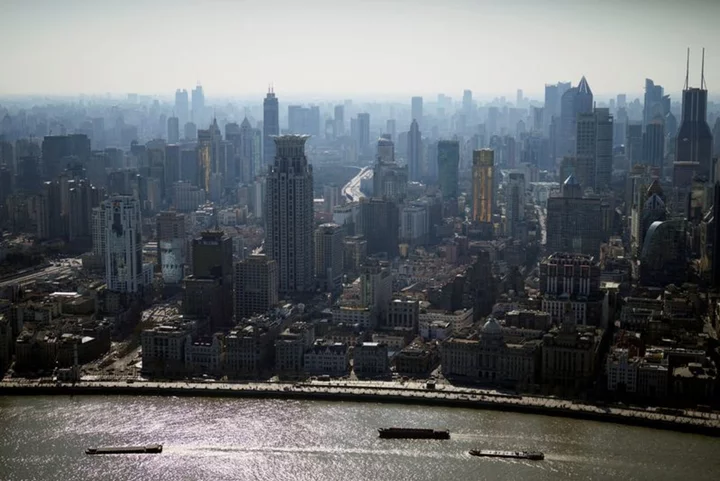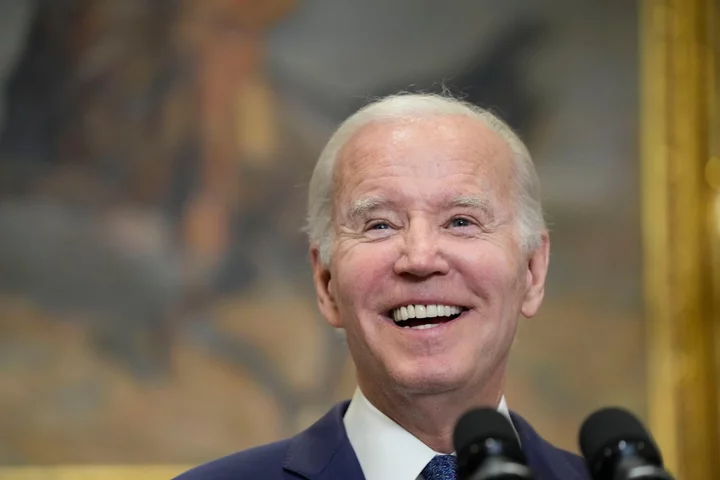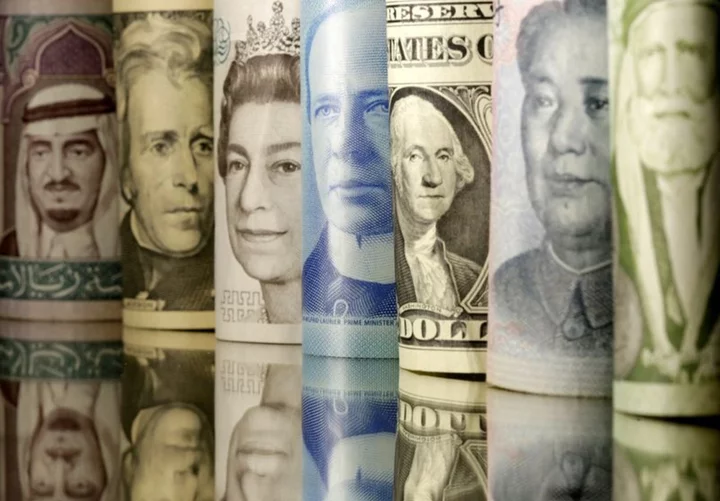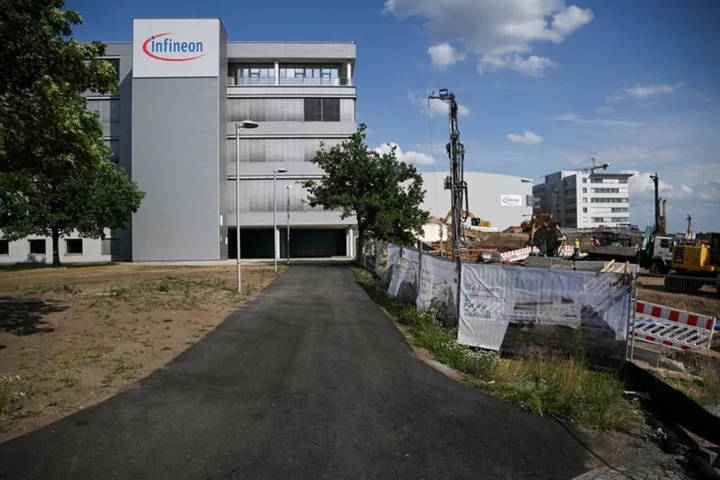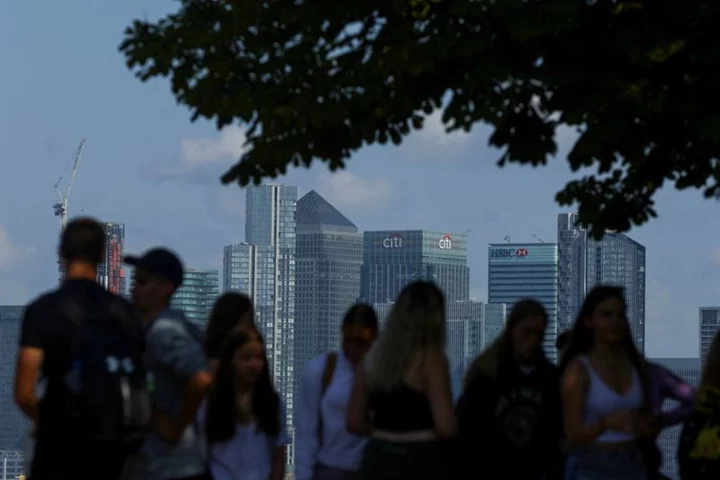By Xie Yu and Yoruk Bahceli
HONG KONG/AMSTERDAM Global investors fleeing China have one simple message for the country's leadership: put prudence aside for a short while, and start spending big.
As they go from hope to disappointment and now capitulation, investors are losing patience with what they see as incoherent, slow and stingy measures by China to revive its sputtering economy and defuse a deepening property crisis.
Modest interest rate cuts and vague promises of support for debt-mired property developers have failed to restore sentiment, and fund managers are turning adamant that they need to see more government money flowing before they consider returning.
China's CSI300 index of blue-chip stocks has tumbled 9% in the past 13 sessions as foreigners pulled out 78 billion yuan ($10.73 billion), in their longest selling streak since 2015.
"At this point there is confusion and, as long as there is confusion, then there's lack of credibility and that means investors are more likely to stay away," said Seema Shah, chief global strategist at Principal Global Investors in London.
"The only way out is to step up fiscal stimulus … because there is a lack of confidence, rate cuts are not doing enough to boost credit demand."
Beijing seems to be paralysed, says Chen Zhao, chief global strategist at research firm Alpine Macro, and that's causing consternation among investors who have spent months hoping for China's usual pragmatism in the face of economic shocks.
Prominent examples are heavy Chinese government spending during the 2008 Global Financial Crisis and its swift intervention during the 2015 market crash.
Zhao finds the lack of a policy response to the weakening economy an "eerie reprisal of China’s stubborn zero-Covid policy", which lasted three years before being suddenly dismantled last December.
"There is no panic, and no messaging from top leadership about any cohesive and credible plan to arrest the slumping economy," he writes.
PROVINCIAL PROFLIGACY
Foremost on every investor's wishlist is a desire to see China's government spend again, regardless of the risk of rising debt. Most analysts think the economy needs much more than the 4 trillion yuan China threw at it in the 2008 crisis, and it should go to local governments and banks.
While China has been promising to do more to support a depressed property sector and consumer spending, even as recently as the July meeting of China's top policymaking Politburo, it hasn't put money to work.
Beijing has pledged subsidies for consumers spending on electric vehicles, electronics and tourism, which are better than a tax or cash handout that might just be saved rather than spent. But the subsidies need to come from local governments, many of which are cash-strapped or even drowning in debt and unable to pay their civil servants.
Frederik Ducrozet, head of macroeconomic research at Pictet Wealth Management, says local governments should be allowed to quickly issue bonds, pointing to how the Chinese government and provinces had raised substantially less cash this year than in 2022.
"To have a significant impact, to be a game changer for the economy, I think you will have to raise that by multiples of that amount," Ducrozet said, referring to last year's fundraising.
Local governments and their financing vehicles play a key role in funding infrastructure projects, which have traditionally been one of the biggest growth drivers for the economy.
Principal's Shah has been neutral on Chinese stocks since May and is hoping for stimulus but doesn't have a specific number for fiscal spending expectations because "a lot is shrouded in mystery" and "a lot of policy is pushed through local authorities, there isn't a centralised move".
Beijing's caution around finances is overdone, some analysts say.
"The fear of rising public sector debt is both misguided and unnecessary, and failing to act will inflict damage on the economy that could take years to repair," says Zhao.
UBS Bank estimates China's total government debt was 111 trillion yuan in 2022, the bulk of which is owed by struggling provincial governments. Yet, overall debt at 92% of what is the world's second-biggest economy is smaller than that in Japan or the United States.
"The market is hoping for some big bang stimulus which would perhaps take China back to where it all started – more debt thrown at areas that need less not more," said Kunjal Gala, head of global emerging markets at Federated Hermes.
Gala expects those challenges might force China's policymakers to become creative with stimulus, such as helping property developers complete homes that have already been started, changing the way local governments fund themselves and finding alternative ways to boost consumer sentiment and wealth.
IDEAL VS IDEOLOGY
The second item on investors' wishlist is tied to the first: fixing the property sector crisis will improve local government finances as well as consumer sentiment in a nation where home ownership is sacred.
Yan Wang, chief emerging markets and China strategist at Alpine Macro, says housing policies have eased but still aren't stimulative, given high down payment requirements and even interest rates. Commercial banks should be subsidised for lowering mortgage rates, he says.
Communication is equally important, investors say, and that China needs to show through words and actions that private business interests will not fall prey to President Xi Jinping's long running quest for 'common prosperity'.
Foreigners aren't just running. Sell-side analysts no longer give China the benefit of doubt around achieving its 5% growth target this year. The lack of concrete stimulus measures now is prompting many China watchers to downgrade their growth estimates for the next few years.
"We've based our assumptions on China’s real GDP growth to average 3-4% through 2027 because we’ve felt that government concerns over debt would prevent a more aggressive fiscal expansion," said Lorraine Tan, director of equity research for Asia at Morningstar.
($1 = 7.2766 Chinese yuan renminbi)
(Reporting by Dhara Ranasinghe in London, Davide Barbuscia in New York, Yoruk Bahceli in Amsterdam, Xie Yu in Hong Kong, Ankur Banerjee and Tom Westbrook in Singapore, Li Gu in Shanghai; Writing by Vidya Ranganathan; Editing by Kim Coghill)

